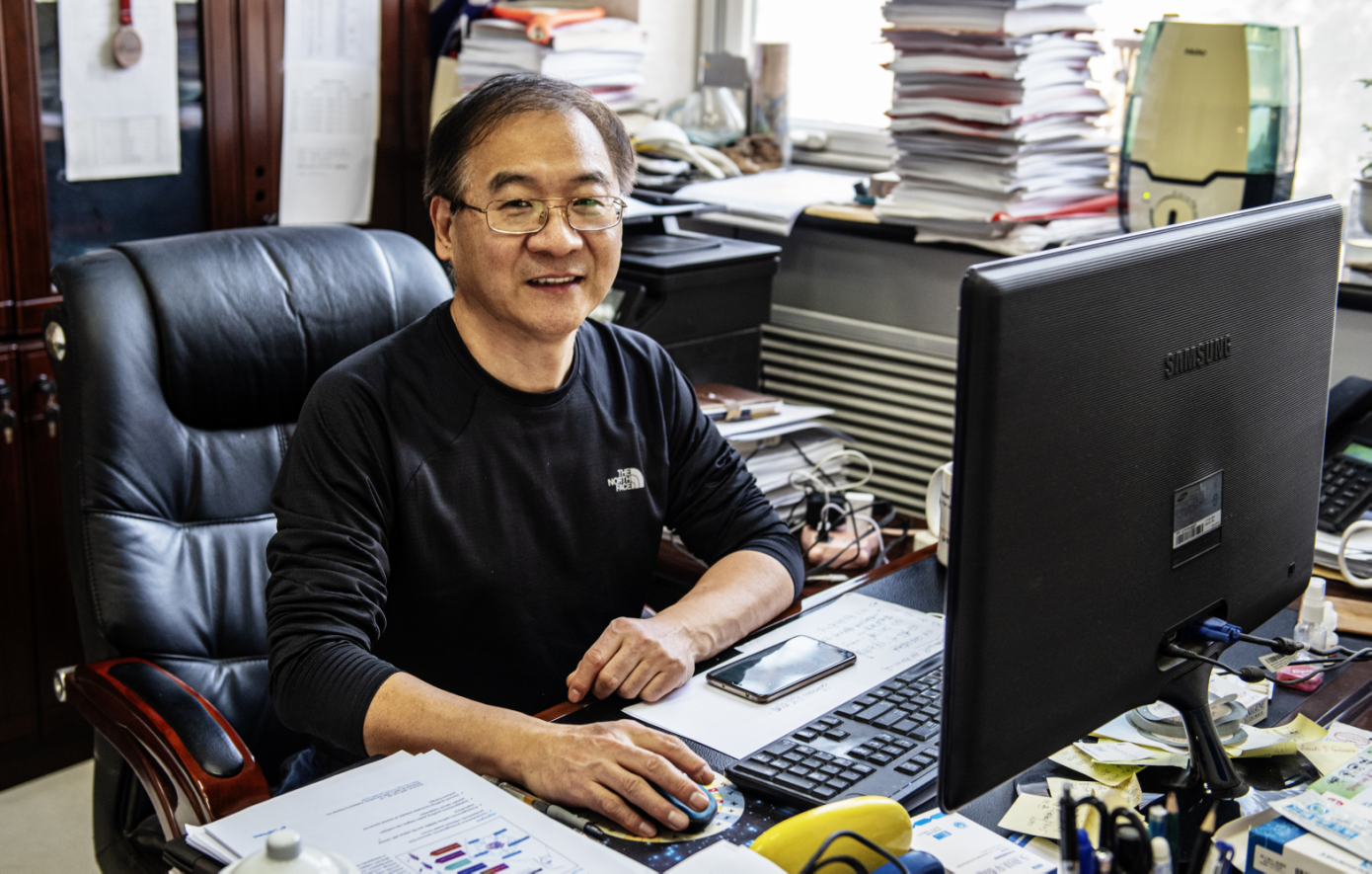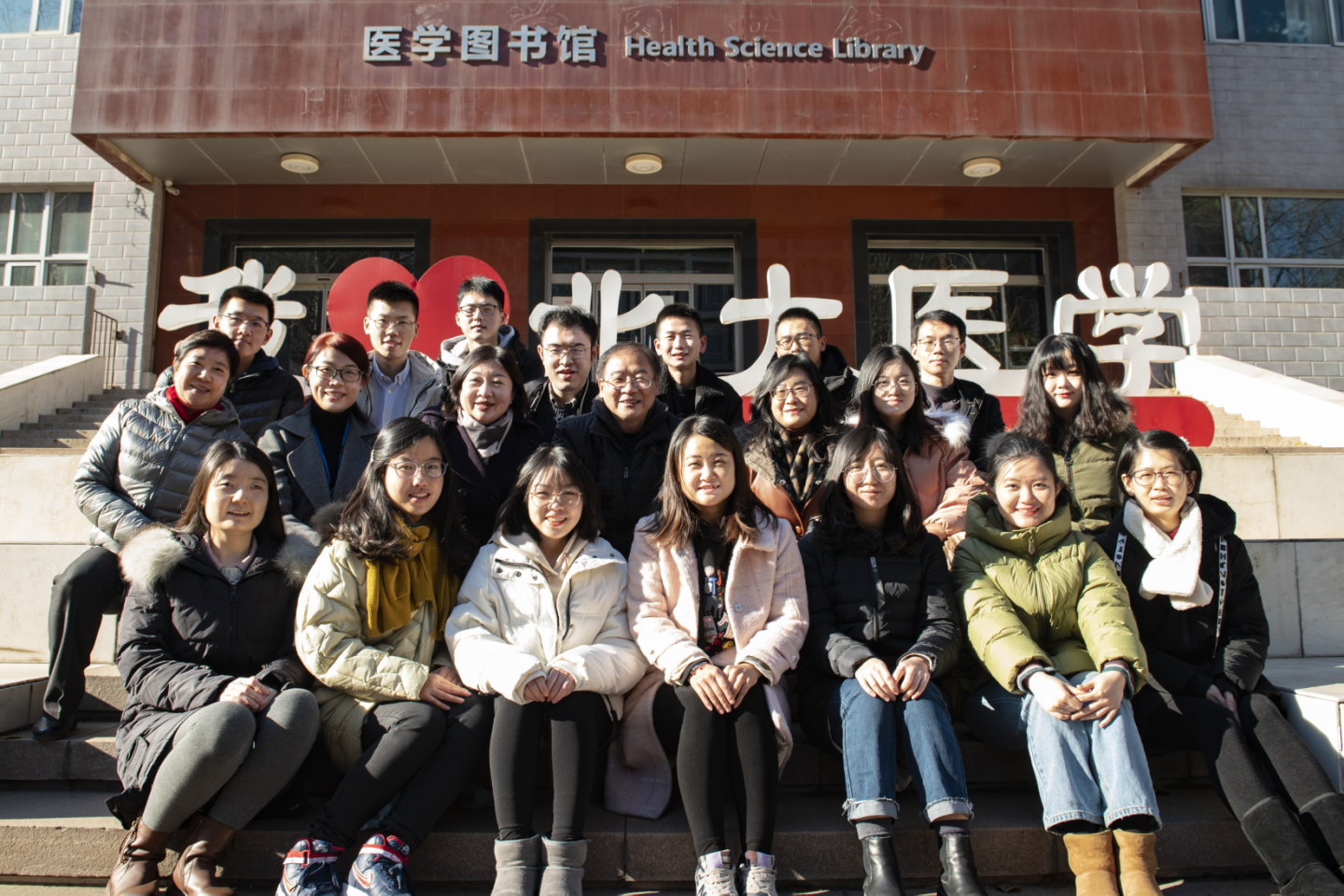Department of Biochemistry and Molecular Biology
Jianyuan Luo

Jianyuan Luo
Department of Biochemistry and Molecular Biology, Department of Medical Genetics, Peking University Health Science Center
Contact Information
Email: luojianyuan@bjmu.edu.cn
Tel:01082805861
Personal Profile
Professor Jianyuan Luo graduated with a bachelor's degree from the Department of Biology at Peking University in 1986. In 1990, obtained a master's degree from the same department and remained at the university as a lecturer. In 1992, pursued further studies in the United States, earning a doctoral degree from the University of Kentucky and conducting postdoctoral research at Columbia University. From 2003, served as an assistant professor and established a laboratory in the Department of Cancer Biology at the University of Massachusetts Medical School. From 2010 to 2015, worked as an associate professor at the University of Maryland School of Medicine. Returned to China full-time in 2015. He was a Director of the Academic Committee at the School of Basic Medical Sciences, Peking University; Currently holds the positions of Head of the Department of Biochemistry and Biophysics at Peking University; Head of the Department of Medical Genetics at Peking University; Director of the Peking University Medical Genetics Center; and Director of the Beijing Key Laboratory of Protein Modification and Cellular Function.
Professor Luo primarily engages in research focusing on the functional regulation of protein post-translational modifications in cancer initiation, progression, and cellular senescence. He has made groundbreaking contributions in the regulation of protein function through protein acetylation modifications, particularly pioneering global research on the deacetylation regulation of the tumor suppressor p53. He has published numerous papers in journals such as Nature, Cell, Molecular Cell, PNAS, and Cancer Research, which have been cited over 15,000 times. Among these, his study published in Cell on the regulation of the tumor suppressor p53 by the histone deacetylase SIRT1 pioneered the research field of SIRT1. In the United States, he served as the principal investigator for research grants such as NIH R01. After returning to China, he has led five projects funded by the National Natural Science Foundation of China and participated in one 973 Program project.
Research Directions and Fields
(1) The mechanistic role of protein post-translational modifications in tumorigenesis and aging;
(2) The molecular mechanisms of epigenetic regulation involved in tumor initiation and progression;
(3) The mechanistic role of DNA damage repair in tumorigenesis, tumor progression, and aging.
Laboratory Members
Co-IP: Associate Professor Wang Haiying;
Research Assistant: Associate Professor Wu Dan;
Laboratory Management: Chief Technician Liu Minghui.

Representative Publications
1. Bie J, Li Y, Song C, Weng Q, Zhao L, Su L, Zhao Z, Ye Y, Shen Z, Ji J, Luo J. (2024) LAMTOR1 ablation impedes cGAS degradation caused by chemotherapy and promotes antitumor immunity. Proc Natl Acad Sci U S A. 2024 Oct 8;121(41):e2320591121.
2. Bie J, Li R, Li Y, Song C, Chen Z, Zhang T, Tang Z, Su L, Zhu L, Wang J, Wan Y, Chen J, Liu X, Li T, Luo J. (2024) PKM2 aggregation drives metabolism reprograming during aging process. Nat Commun. 2024 Jul 9;15(1):5761.
3. Li Y, Bie J, Song C, Li Y, Zhang T, Li H, Zhao L, You F, Luo J. (2023) SIRT2 negatively regulates the cGAS-STING pathway by deacetylating G3BP1. EMBO Rep. 2023 Dec 6;24(12):e57500. (Cover story)
4. Li Y, Bie J, Zhao L, Song C, Zhang T, Li M, Yang C, Luo J. (2023) SLC25A51 promotes tumor growth through sustaining mitochondria acetylation homeostasis and proline biogenesis. Cell Death Differ. 2023 Aug;30(8):1916-1930.
5. Li M, Xiong J, Yang L, Huang J, Zhang Y, Liu M, Wang L, Ji J, Zhao Y, Zhu WG, Luo J,* Wang H.* (2022) Acetylation of p62 regulates base excision repair through interaction with APE1. Cell Rep. 2022 Jul 19;40(3):111116. doi: 10.1016/j.celrep.2022.111116. PMID: 35858573.
6. Zhang T, Wang Z, Liu M, Liu L, Yang X, Zhang Y, Bie J, Li Y, Ren M, Song C, Wang W, Tan H, Luo J. (2022) Acetylation dependent translocation of EWSR1 regulates CHK2 alternative splicing in response to DNA damage. Oncogene. 2022 Jun 22.
7. Meng C, Zhan J, Chen D, Shao G, Zhang H, Gu W, Luo J. (2021) The deubiquitinase USP11 regulates cell proliferation and ferroptotic cell death via stabilization of NRF2. Oncogene. 40:1706-1720.
8. Wang B, Ye Y, Yang X, Liu B, Wang Z, Chen S, Jiang K, Zhang W, Jiang H, Mustonen H, Puolakkainen P, Wang S*, Luo J*, Shen Z*. (2020) SIRT2-dependent IDH1 deacetylation inhibits colorectal cancer and liver metastases. EMBO Rep. 21:e48183.
9. Liu L, Chen S, Yu M, Ge C, Ren M, Liu B, Yang Y, Christian T, Hou YM, Zou J, Zhu WG, Luo J. (2020) Deacetylation of HSD17B10 by SIRT3 regulates cell growth and cell resistance under oxidative and starvation stresses. Cell Death Disease. 11:563. doi: 10.1038/s41419-020-02763-9.
10. Wang, Z., Yang, X., Liu, C., Li, X., Zhang, B., Wang, B., Zhang, Y., Song, C., Zhang, T., Liu, M., Liu, B., Ren, M., Jiang, H., Zou, J., Liu, X., Zhang, H., Zhu, W.G., Yin, Y., Zhang, Z., Gu, W., and Luo, J. (2019) Acetylation of PHF5A modulates stress responses and colorectal carcinogenesis through alternative splicing mediated upregulation of KDM3A. Mol. Cell 74:1250-1263.
11. Liu, B., Yi, J., Yang, X., Liu, L., Lou, X., Zhang, Z., Qi, H., Wang, Z., Zou, J., Zhu, W.G., Gu, W., Luo, J. (2019) MDM2-mediated degradation of WRN promotes cellular senescence in a p53-independent manner. Oncogene. 38:2501-2515.
12. Yang, X., Wang, Z., Li, X., Liu, B., Liu, M., Liu, L., Chen, S., Ren, M., Wang, Y., Yu, M., Wang, B., Zou, J., Zhu, WG., Yin, Y., Gu, W., and Luo, J. (2018) SHMT2 desuccinylation by SIRT5 drives cancer cell proliferation. Cancer Res. 78: 372-386.
13. Fan, W., & Luo, J. (2010) SIRT1 regulates UV-induced DNA repair through deacetylating XPA. Mol. Cell, 39, 247-258.
14. Wang, R., Cherukuri, P., Luo, J. (2005) Activation of Stat3 sequence-specific DNA binding and transcription by p300/CBP mediated acetylation. J Biol. Chem. 280, 11528-11534.
15. Luo, J., Li, M., Tang, Y., Laszkowska, M., Roeder, B., Gu, W (2004) Acetylation of p53 augments its site-specific DNA binding both in vitro and in vivo. Proc. Natl. Acad. Sci. USA 101, 2259-2264. published February 12, 2004, 10.1073/pnas.0308762101.
16. Luo, J., Nikolaev, A., Imai, S., Chen, D., Su, F., Shiloh, A., Guarente, L., Gu, W. (2001). Negative control of p53 by Sir2α promotes cell survival under stress. Cell 107, 137-148.
17. Luo, J., Su, F., Chen, D., Shiloh, A., Gu, W. (2000). Deacetylation of p53 modulates its effect on cell growth and apoptosis. Nature 408, 377-381.

